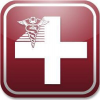Overview
Join an award-winning team of dedicated professionals committed to our core values of quality, compassion and community! Garden City Hospital, a member of Prime Healthcare, offers incredible opportunities to expand your horizons and be part of a community dedicated to making a difference.
At Garden City Hospital, we pride ourselves on community involvement and commitment to preserving access to quality and compassionate healthcare.
We are a state-of-the-art medical facility with over 300 licensed beds and a teaching hospital, offering medical education to students, residents and fellows from across the country.
The residency and fellowship programs offer graduate medical education to more than 80 trainees in specialties. Garden City Hospital has an award-winning staff of over 350 of the area's best and brightest physicians from almost every specialty. Learn more at .
Company is an equal employment opportunity employer. Company prohibits discrimination against any applicant or employee based on race, color, sex, sexual orientation, gender identity, religion, national origin, age (subject to applicable law), disability, military status, genetic information or any other basis protected by applicable federal, state, or local laws.
The Company also prohibits harassment of applicants or employees based on any of these protected categories. Know Your Rights :
Responsibilities
Each individual performs those waived, moderate, or highly complex tests authorized by CLIA, Bus. & Prof. Code Section 1204, and must possess a degree of skill commensurate with individual’s education, training or experience and technical abilities.
Each individual performing the above procedures must : 1) adhere to the laboratory’s procedures for the collection, processing, analysis, and reporting of patient test results, 2) follow the laboratory’s established quality control policies and procedures in documenting all corrective actions taken when test systems deviate from the laboratory’s established performance specifications, 3) be capable of identifying problems that may adversely affect test performance and either correct the problem or immediately notify your immediate supervisor, Director, or Medical Director, 4) perform a wide variety of laboratory procedures requiring independent judgment using both manual and automated methods in Hematology, Blood Bank, Chemistry, Urinalysis, Coagulation, Microbiology, Immunology, and any other discipline as introduced into the laboratory, 5) perform and document maintenance daily, weekly, monthly, or as needed on instruments and equipment as appropriate, 6) review the accuracy of patient results prior to releasing or reporting, 7) recognize age specific differences in expected results for newborns to geriatrics, 8) ensure that the testing of proficiency testing samples are tested in the same manner as patient samples and that collaboration with other laboratories is prohibited prior to the reporting of proficiency testing results to the appropriate agencies, 9) may be required to perform venipuncture or capillary puncture on various age groups from newborn to geriatrics, 10) assist in the development and maintenance of laboratory policies and procedures, 11) adheres to all department and hospital policies and procedures related to safety, infection control, emergency preparedness, and human resources,12) in the absence of a supervisor, may be assigned / identified as Lead Tech, having responsibility for the section or department during their shift, 13) may be assigned responsibilities related to LIS and / or POCT.
14) other tasks or responsibilities may be assigned by the department manager / director.
Qualifications
EDUCATION, EXPERIENCE, TRAINING
1. Meet the requirements of 493.1423 Standard; Testing personnel qualifications.
2. Each individual performing moderate complexity testing must -
3. (a) Possess a current license issued by the State in which the laboratory is located, if such licensing is required; and
4. (b) Meet one of the following requirements :
5. (1) Be a doctor of medicine or doctor of osteopathy licensed to practice medicine or osteopathy in the State in which the laboratory is located or have earned a doctoral, master's, or bachelor's degree in a chemical, physical, biological or clinical laboratory science, or medical technology from an accredited institution; or
6. (2) Have earned an associate degree in a chemical, physical or biological science or medical laboratory technology from an accredited institution; or
7. (3) Be a high school graduate or equivalent and have successfully completed an official military medical laboratory procedures course of at least 50 weeks duration and have held the military enlisted occupational specialty of Medical Laboratory Specialist (Laboratory Technician); or
8. (4)(i) Have earned a high school diploma or equivalent; and
9. (ii) Have documentation of training appropriate for the testing performed prior to analyzing patient specimens. Such training must ensure that the individual has -
- 10. (A) The skills required for proper specimen collection, including patient preparation, if applicable, labeling, handling, preservation or fixation, processing or preparation, transportation and storage of specimens;
- 11. (B) The skills required for implementing all standard laboratory procedures;
- 12. (C) The skills required for performing each test method and for proper instrument use;
- 13. (D) The skills required for performing preventive maintenance, troubleshooting and calibration procedures related to each test performed;
- 14. (E) A working knowledge of reagent stability and storage;
- 15. (F) The skills required to implement the quality control policies and procedures of the laboratory;
16. (G) An awareness of the factors that influence test results; and
17. (H) The skills required to assess and verify the validity of patient test results through the evaluation of quality control sample values prior to reporting patient test results.
18. 57 FR 7172, Feb. 28, 1992, as amended at 58 FR 5234, Jan. 19, 1993 One year hospital laboratory work experience preferred, but not required
19. Bachelor’s Degree in chemical, physical, biological, or clinical laboratory science, or medical technology from an accredited institution, or other educational requirements as stated in CLIA (42 CFR 493.1489)
20. Current and Valid State License if the laboratory is located in a state where required.









